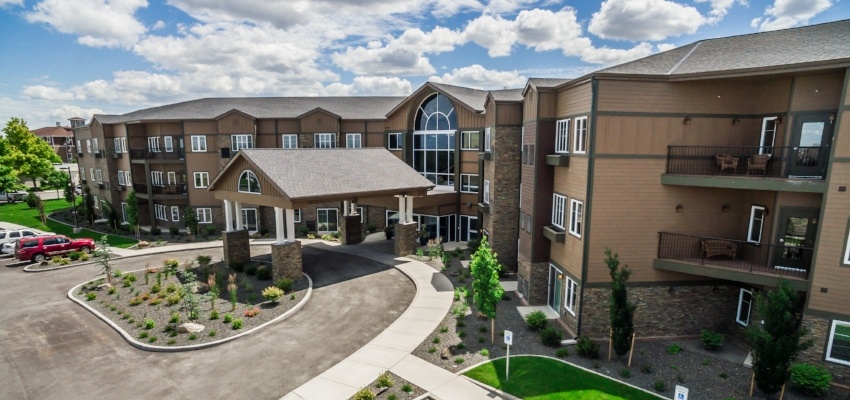As you consider senior living options, it is helpful to familiarize with some commonly used terms that will help you make an informed decision for you or your loved one. While the senior living glossary of terms is quite extensive, to get you started, we have outlined five of the most commonly used expressions below.
Sandwich Generation
The term "sandwich generation refers to people typically in their thirties or forties who are responsible for bringing up their children and for the care of their aging parents. As people are waiting later in life to have children, this age range can be quite diverse. According to the Pew Research Center, just over one of every eight Americans aged 40 to 60 is part of this generation.
Person-Centered Care
The delivery of care in senior living communities has shifted dramatically in recent years. Communities that promote person-centered care demonstrate a commitment to giving residents and their family members a choice in the delivery of their daily services. An example of person-centered care would be accommodating a senior's desire to have bathing assistance at 4:00 p.m., just before dinnertime, rather than at 7:00 a.m. when it may be more convenient for staffing.
ADLs
ADLs is an acronym for Activities of Daily Living and represent routine activities that people tend do every day without needing assistance. There are six basic ADLs: eating, bathing, dressing, toileting, transferring (walking), and continence. Most of the clinically based services provided in assisted living and memory care communities fall into one of the six ADLs. The degree of care depends entirely on a senior's needs. To develop a specific care plan, community staff and the resident’s medical providers complete an assessment.
Continuum of Care
Continuum of Care is a comprehensive range of programs and levels of care. In senior living, this spectrum may include independent living, assisted living, skilled nursing, rehabilitation, memory support, and home health care. A commonly asked question is how long a facility will be able to care for a resident’s needs. Fieldstone communities offer independent living, assisted living, and memory care settings which often allow seniors to remain in a community setting even as their needs change.
Respite Care
Respite care is short-term care for older adults. Independent living, assisted living, and memory care communities who offer this type of care welcome seniors to join them for a short period. Respite care allows a caregiver to go on vacation, holiday, or take a much-needed break while knowing their loved one’s needs are met. A short-term stay is also a great way for a senior to experience what life is like in a retirement community before making a permanent move. At Fieldstone Communities, respite care residents are treated with the same compassion and commitment that all residents receive. No matter how long the stay, special guests have access to all of the community’s amenities, services, and activities.
We hope that this information helps you feel more informed as you speak with prospective retirement communities and as you share your knowledge with your family and friends who may be going through a similar experience! For additional information, the staff at Fieldstone Communities would love to connect and help you in your journey. You can also check out this helpful resource guide.


